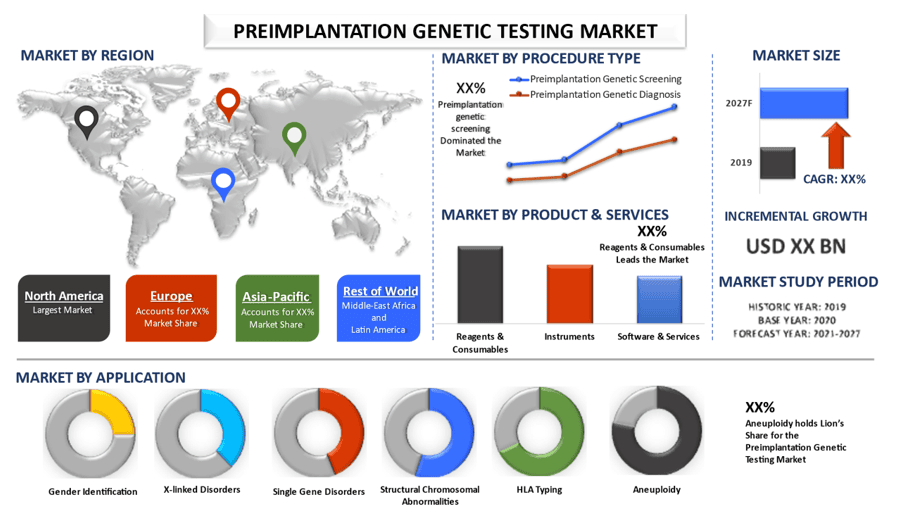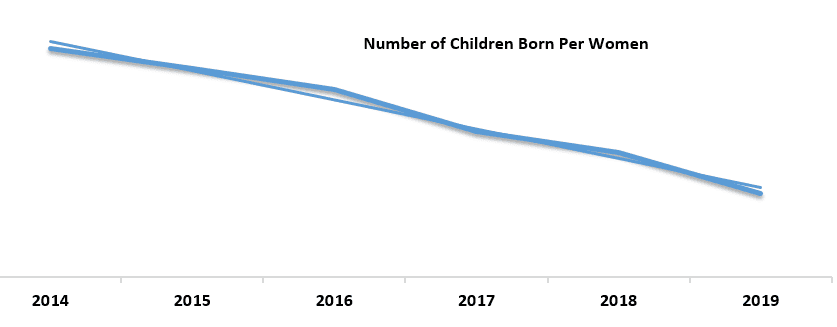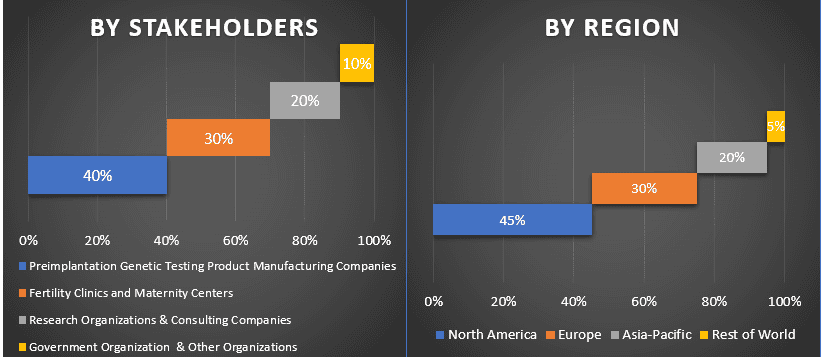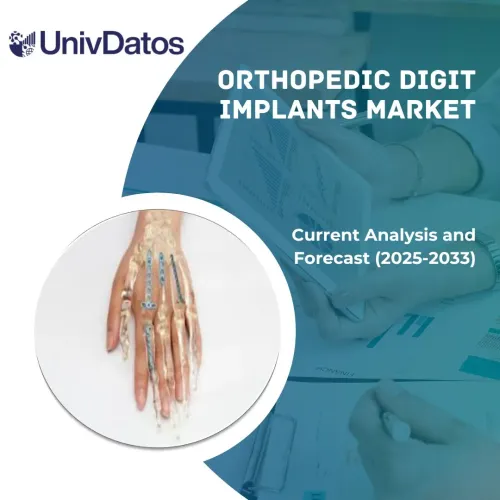- Home
- About Us
- Industry
- Services
- Reading
- Contact Us
Preimplantation Genetic Testing Market: Current Analysis and Forecast (2021-2027)
Emphasis on Product & Services (Reagents & Consumables, Instruments, Software & Services); Technology (Next-Generation Sequencing (NGS), Polymerase Chain Reaction, Fluorescent In-Situ Hybridization, Comparative Genomic Hybridization, Single Nucleotide Polymorphism); Procedure Type (Preimplantation Genetic Screening, Preimplantation Genetic Diagnosis); Application (Aneuploidy, Structural Chromosomal Abnormalities, Single-Gene Disorders, X-Linked Disorders, HLA Typing, and Gender Identification); Region and Country

Global Preimplantation Genetic Testing Market is anticipated to grow with an elevated CAGR of around 10% over the forecast period (2021-2027). Preimplantation genetic testing is done before the implantation is achieved and helps in diagnosing various genetic defects present within the embryos. This genetic testing assists in analyzing the genetic profile of embryos which aids in avoiding selective pregnancy termination.
The preimplantation genetic testing market has been growing on account of various factors including a rising awareness among couples regarding the advancements in diagnostics coupled with a large number of neonatal deaths because of complications during childbirth. Further, the growing prevalence of various congenital genetic diseases such as Edwards syndrome, common pediatric respiratory disorders, down’s syndrome, among others is also one of the prominent factors contributing to the growth of the market. For instance, nearly 3 million deaths are attributed to pediatric pneumonia across the globe each year, according to the data published by the United Nations Children’s Fund (UNICEF) in November 2018. This abnormality was exclusively seen in couples with hereditary disorders due to which there has been an increased demand for early diagnosis which in turn is boosting the preimplantation genetic testing market.
Additionally, With rapid technological advancement and rising awareness among the consumers, many of the industry players are focused on launching new products in the market due to which the market is witnessing an uptick all over the globe. For example, in October 2019, PerkinElmer launched the PG-Seq Rapid Non-Invasive Preimplantation Genetic Testing for Aneuploidy kit, which tests spent embryo culture media for chromosomal abnormalities during in vitro treatment.
Global fertility rate from 2014 to 2019

Thermo Fisher Scientific Inc., Agilent Technologies Inc., PerkinElmer Inc., Illumina, Inc., The Cooper Companies Inc., Bioarray S.L., Natera Inc., Quest Diagnostics Inc., Laboratory Corporation of America Holdings, F. Hoffmann-La Roche AG, are some of the prominent players operating in the preimplantation genetic testing market. Several M&As along with partnerships have been undertaken by these players to facilitate customers with preimplantation genetic testing products.
Insights Presented in the Report
“Amongst Product & Services, reagents & consumables segment holds the major share”
Based on product & services, the preimplantation genetic testing market is segmented into reagents & consumables, instruments, and software & services. The reagents & consumables segment accounted for the largest market share in 2020 it is estimated that it will exhibit the highest CAGR during the forecast owing to the growing applications of specific technologies such as NGS, FISH, etc. for the diagnosis of genetic disorders.
“Amongst Technology, next-generation sequencing segment holds the major share”
Based on technology, the preimplantation genetic testing market is segmented into next-generation sequencing, polymerase chain reaction, fluorescent in-situ hybridization, comparative genomic hybridization, and single nucleotide polymorphism. The next-generation sequencing segment occupied the substantial share of the preimplantation genetic testing market in 2020 and it is expected to grow considerably in the upcoming years as it is essential for successful embryo transfer and achieving pregnancy, thus plummeting the time and cost. Also, the growing adoption of automation and reduction in human errors are some of the factors driving the growth of the segment.
“Amongst Procedure Type, preimplantation genetic screening segment holds the major share”
Based on procedure type, the market is fragmented into preimplantation genetic screening and preimplantation genetic diagnosis. In 2020, the preimplantation genetic screening segment grabbed a considerable market share, and it is expected to grow at a significant CAGR during the forecast period owing to the declining fertility rate due to rising maternal age. Additionally, the benefits offered by preimplantation genetic screening are also one prominent reason contributing to the growth of this segment. Some of them include an increased likelihood of healthy pregnancy, a better rate of implantation, decreased risks of miscarriage and reduced cycle time of IVF, etc.
“Amongst Application, aneuploidy segment holds the major share”
Based on application, the market is fragmented into aneuploidy, structural chromosomal abnormalities, single-gene disorders, x-linked disorders, HLA typing, and gender identification. In 2020, the aneuploidy segment grabbed a considerable market share, and it is expected to grow at a significant CAGR during the forecast period. The growth of this segment is attributed to the rising incidences of aneuploidy due to the increasing maternal age. However, the HLA Typing segment is expected to grow at the highest CAGR over the projected timeframe due to the growing number of patients with damaged bone marrow or defective immune systems.
“North America represents one of the largest markets of the preimplantation genetic testing market”
For a better understanding of the market dynamics of the preimplantation genetic testing market, a detailed analysis was conducted for different regions across the globe including North America (the U.S, Canada, and the Rest of North America), Europe (Germany, France, Spain, United Kingdom, Italy, and Rest of Europe), Asia-Pacific (China, India, Australia, Japan, and Rest of APAC), Rest of World has been conducted. North America constitutes a major market for the preimplantation genetic testing market industry and generated revenue of USD XX Million in 2020 owing to the growing healthcare expenditure and an increase in infertility cases in the region.
Reasons to buy this report:
- The study includes market sizing and forecasting analysis validated by authenticated key industry experts
- The report presents a quick review of overall industry performance at one glance
- The report covers an in-depth analysis of prominent industry peers with a primary focus on key business financials, product portfolio, expansion strategies, and recent developments
- Detailed examination of drivers, restraints, key trends, and opportunities prevailing in the industry
- The study comprehensively covers the market across different segments
- Deep dive regional level analysis of the industry
Customization Options:
The global preimplantation genetic testing market can further be customized as per the requirement or any other market segment. Besides this, UMI understands that you may have your own business needs, hence feel free to connect with us to get a report that completely suits your requirements.
Table of Content
Analyzing the historical market, estimation of the current market, and forecasting the future market of the global preimplantation genetic testing market were the three major steps undertaken to create and analyze the adoption of preimplantation genetic testing in major regions globally. Exhaustive secondary research was conducted to collect the historical market numbers and estimate the current market size. Secondly, to validate these insights, numerous findings and assumptions were taken into consideration. Moreover, exhaustive primary interviews were also conducted, with industry experts across the value chain of the global preimplantation genetic testing market. Post assumption and validation of market numbers through primary interviews, we employed a top-down/bottom-up approach to forecasting the complete market size. Thereafter, market breakdown and data triangulation methods were adopted to estimate and analyze the market size of segments and sub-segments the industry pertains to. Detailed methodology is explained below:
Seek More Details About Research Methodology
Analysis of Historical Market Size
Step 1: In-Depth Study of Secondary Sources:
Detail secondary study was conducted to obtain the historical market size of the preimplantation genetic testing through company internal sources such as annual report & financial statements, performance presentations, press releases, etc., and external sources including journals, news & articles, government publications, competitor publications, sector reports, third-party database, and other credible publications.
Step 2: Market Segmentation:
After obtaining the historical market size of the preimplantation genetic testing market, we conducted a detailed secondary analysis to gather historical market insights and share for different segments & sub-segments for major regions. Major segments included in the report as product & services, technology, procedure type, and application. Further country-level analyses were conducted to evaluate the overall adoption of preimplantation genetic testing across the globe.
Step 3: Factor Analysis:
After acquiring the historical market size of different segments and sub-segments, we conducted a detailed factor analysis to estimate the current market size of the preimplantation genetic testing. Further, we conducted factor analysis using dependent and independent variables such as increase in number of fertility clinics and high risk of chromosomal abnormalities in the fetus. A thorough analysis was conducted for demand and supply-side scenarios considering top partnerships, merger and acquisition, business expansion, and product launches in the preimplantation genetic testing sector across the globe.
Current Market Size Estimate & Forecast
Current Market Sizing: Based on actionable insights from the above 3 steps, we arrived at the current market size, key players in the preimplantation genetic testing market, and market shares of the segments. All the required percentage shares split, and market breakdowns were determined using the above-mentioned secondary approach and were verified through primary interviews.
Estimation & Forecasting: For market estimation and forecast, weights were assigned to different factors including drivers & trends, restraints, and opportunities available for the stakeholders. After analyzing these factors, relevant forecasting techniques i.e., top-down/bottom-up approach was applied to arrive at the market forecast about 2027 for different segments and subsegments across the major markets globally. The research methodology adopted to estimate the market size encompasses:
- The industry’s market size, in terms of value (US$) and the adoption rate of preimplantation genetic testing across the major markets domestically
- All percentage shares, splits, and breakdowns of market segments and sub-segments
- Key players in the preimplantation genetic testingmarket in terms of products offered. Also, the growth strategies adopted by these players to compete in the fast-growing market
Market Size and Share Validation
Primary Research: In-depth interviews were conducted with the Key Opinion Leaders (KOLs) including Top Level Executives (CXO/VPs, Sales Head, Marketing Head, Operational Head, and Regional Head, Country Head, etc.) across major regions. Primary research findings were then summarized, and statistical analysis was performed to prove the stated hypothesis. Inputs from primary research were consolidated with secondary findings, hence turning information into actionable insights.
Split of Primary Participants in Different Regions

Market Engineering
Data triangulation technique was employed to complete the overall market estimation and to arrive at precise statistical numbers of each segment and sub-segment of the preimplantation genetic testing market. Data was split into several segments & sub-segments post studying various parameters and trends in the areas of product & services, technology, procedure type, and application of the preimplantation genetic testing market.
The main objective of the Preimplantation Genetic Testing Market Study
The current & future market trends of preimplantation genetic testing were pinpointed in the study. Investors can gain strategic insights to base their discretion for investments from the qualitative and quantitative analysis performed in the study. Current and future market trends were determined the overall attractiveness of the market at a regional level, providing a platform for the industrial participant to exploit the untapped market to benefit as a first-mover advantage. Other quantitative goals of the studies include:
- Analyze the current and forecast market size of preimplantation genetic testing in terms of value (US$). Also, analyze the current and forecast market size of different segments and sub-segments
- Segments in the study include areas of of product & services, technology, procedure type, and application
- Define and analysis of the regulatory framework for the preimplantation genetic testing industry
- Analyze the value chain involved with the presence of various intermediaries, along with analyzing customer and competitor behaviors of the industry
- Analyze the current and forecast market size of the preimplantation genetic testing market for the major region
- Major regions studied in the report include North America, Europe, Asia-Pacific and Rest of the world
- Company profiles of the preimplantation genetic testing market and the growth strategies adopted by the market players to sustain in the fast-growing market
Deep dive regional level analysis of the industry
Related Reports
Customers who bought this item also bought










